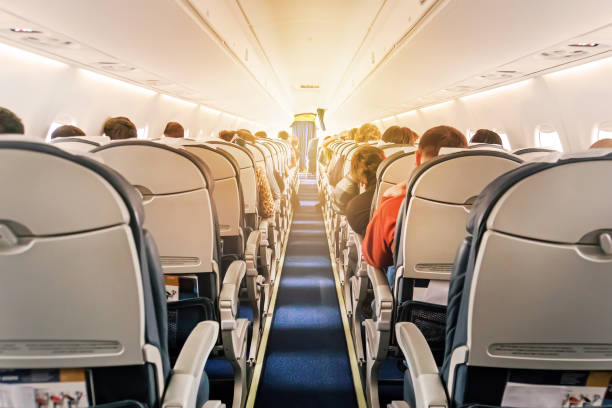
Many patients are concerned that having varicose veins could cause deep vein thrombosis (DVT) while flying. It seems logical since both disorders involve the vascular system and both are heavily localized in the lower extremities. However, any added danger is slight.
Deep vein thrombosis (DVT) manifests as an aching pain generally located in the lower extremities. While DVT is rare, flying is a risk factor in its occurrence. DVT is a blood clot that is lodged at the point of discomfort. While uncomfortable, it is not life-threatening if it remains in the vein in your leg. Unfortunately, the blood clot is prone to travel through the venous system to the heart, which pumps it into the lungs. A blood clot in the lung is called a pulmonary embolism and is very life-threatening.
Any time you have leg pain or “heaviness,” swelling, or aching in your leg, especially if it is only a singular leg and you have taken a flight within the last two weeks, seek medical help. A simple in-office ultrasound will determine if you have DVT. Your physician will place you on blood thinners, and these usually break up a clot within a few hours. Don’t wait until you are home if you are on a business or personal trip in a foreign country — ultrasound and anticoagulants are typical treatments you can find almost anywhere you travel.
The general rule of thumb is to wait four weeks after a diagnosis of DVT before you resume flying. This is dependent on the length of your flight, the severity of your DVT, and the recommendation of your physician.

While some patients worry about developing deep vein thrombosis after varicose vein surgery, the chances of that occurring are significantly less (one in 1,000) than developing DVT after abdominal surgery or a total knee replacement. Ask your doctor for specific guidelines, but as a general guideline, patients can fly 10 days after most varicose vein treatments. If the procedure is less intense, the wait can be shortened to one to two weeks.
Research abounds concerning the links among varicose veins, deep vein thrombosis, and flying. On average, the risk increases only slightly for DVT if you have a history of varicose veins. This risk ranges from 0.9 percent to 5.6 percent. Putting that into perspective, it is similar to flying while pregnant or flying while taking oral contraceptives. However, DVT has many risk factors besides varicose veins. If you are obese, pregnant, have a personal or family history of DVT, if you smoke, are aged 40+, or have recently had an operation, you have a higher risk of DVT during flight. The greatest risk factor for DVT is obesity. Compounding more than two risk factors greatly escalates the risk of DVT, and five or more vastly increases your odds.
Scurr et. al. studied 200 subjects as they traveled in excess of eight hours. Of this population, DNA samples proved that 7 percent were predisposed to DVT. Of the 200 passengers, 16 experienced difficulties: Twelve passengers not wearing elastic compression stockings developed asymptomatic DVT, while four passengers wearing compression stockings developed superficial, rather than deep, blood clots. The study concluded that elastic compression stockings decreased the risk of DVT.
If you are concerned about flying and have several risk factors, it is recommended that you stretch your legs every few hours during long flights, walk around the cabin of the plane if possible, massage your calves, drink water or juice, and choose the correct compression stockings.

While some of the risk factors that tie varicose veins to DVT are documented, the amount of risk of developing DVT because of pre-existing varicose veins is only slight. Being informed allows you to make the correct decision for your circumstances. When in doubt, consult with the expert Orlando vascular physicians at Central Florida Vein & Vascular Center. Contact us today to schedule a consultation. Our offices are located in Ocoee, Kissimmee, The Villages, and Oviedo for your convenience.